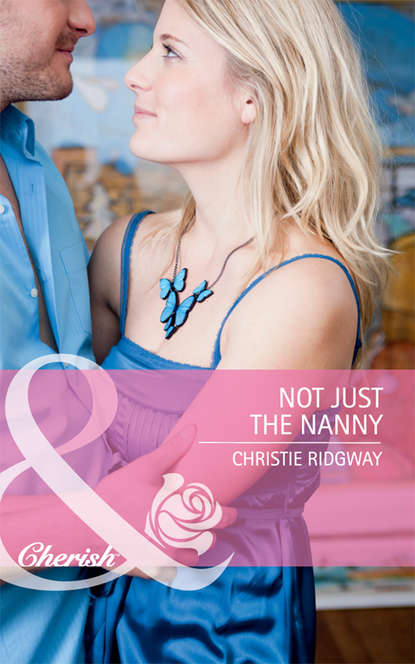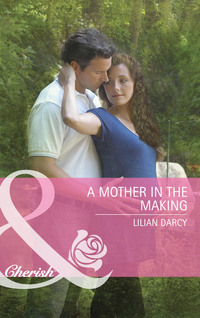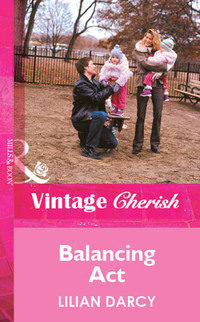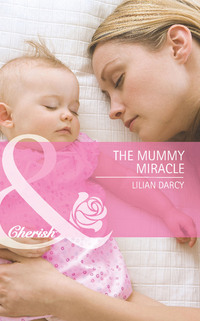
Полная версия
The Baby Made at Christmas
A seriously tiny part, just to be clear.
Most of the time, Lee felt completely happy about the whole thing. And if she tried to project what would have happened if she and Tucker had gone through with the wedding...couple of school-age kids by now, not seeing each other that much because the demands of Tucker’s landscaping business wouldn’t have meshed very well with her own career in mountain sports...
Well, she couldn’t picture it at all.
It scared her that she’d come so close to making such a huge mistake.
In other words, yes, she was really happy for them.
All the same, it had seemed like a good idea not to go east for Christmas this year. She would go for the wedding. Must get that organized soon....
So it was Christmas Eve, and she was on her own. Yes, she had her little tree in the window, with several prettily wrapped gifts beneath. Yes, she was eating baked ham with friends on Christmas night. But still...
She was thirty-three years old. She lived alone and liked it maybe too much. Was it just possible she was getting into a rut?
“Okay, you win,” she said to the Narman hordes overhead. “I’m going out.”
She substituted a quick shower for the long tub soak, dived into a pair of slinky black pants and a sparkly Christmas top she’d planned for tomorrow night, sketched on a little makeup, put in some bright, dangly Christmas-themed earrings, grabbed a big black winter coat and her heeled black faux-fur boots, and went out into the snow to make the easy half mile walk to her favorite Aspen hangout, the Waterstreet Bar.
Nobody was there.
Well, it was crowded, but they were tourists, not locals. No ski instructors, no mountain management people or hospitality staff, none of the year-rounders she saw all the time during the quieter summer months. Where was everyone?
The thought itched in the back of her head that if the Narmans hadn’t been having a noisy party tonight, she would have sat all cozy at home the whole evening and never realized that her Christmas Eve was too solitary, that everyone else, friends and casual acquaintances, had other plans tonight.
She went up to the bar and ordered a light beer and a bowl of spicy wings with sour cream, and when the guy behind the bar offered her one of those buzzer thingies that started hopping around on the table and flashing red lights when your order was ready, she shook her head and said, “Nah, I’ll wait for it here, thanks.”
He looked vaguely familiar, one of the seasonal staff who she’d maybe seen on the slopes, maybe even taught to ski. If they got chatting, she could just stay and eat her wings and drink her beer right here at the bar.
But he was too busy, she soon saw, and he was only about twenty-two. For chatting purposes, he was all about the nineteen-year-old snow bunnies or rich women looking for a short-term good time, with no interest in a hardworking local woman in her thirties who was more athletic than feminine, more striking than pretty.
For the first time in a long while, Lee was suddenly conscious of the nearly eleven-year-old burn scarring on her neck and jaw. She didn’t often wear neck-baring clothes, but the Christmas top had been pretty and silly, and she hadn’t been able to resist.
The friends she was going to join for dinner tomorrow had seen her scars before, so that was no big deal. They were faded now. Her skin was pale and sort of melty-looking from just above her left jawline to just below her collarbone and out to her shoulder. She’d gotten splashed with hot oil in the kitchen of the restaurant at Spruce Bay when she was around the same age as this barman here, and had spent some time in hospital, dealing with pain and infection and skin grafts.
Old news.
Irrelevant, for a woman who spent most of her time in ski jackets or collared hiking shirts.
It unsettled her to be thinking about it as if it mattered, because it didn’t. It really didn’t. She liked this top. It was fun. If anyone noticed the scarring, and disapproved of her showing it, that was their problem, not hers.
She sat up straighter and wiggled her head a little so that she could feel the tickle of the spangly red-gold-and-green Christmas trees dangling from her ears. The youthful barman delivered her beer and she drawled, “Thanks,” and dismissed him from her mind.
“Nice earrings,” someone said, close by.
She turned to find an unfamiliar male in a black T-shirt seated on the bar stool beside her. “Oh. Thanks.”
He was grinning at her. “If you’re wondering how much they caught the light just now, the answer is a lot. I still have spots before my eyes.”
“You got me,” she said, grinning back. “I did it on purpose. Love dazzling people till they can’t see.”
“No point in wearing Christmas trees if nobody notices, right?”
“Right.”
The twenty-two-year-old thumped two bowls of wings down on the bar, one in front of Lee and one in front of the earring admirer, then reached back to the serving window again and brought out two matching bowls of sour cream. “Snap,” said the stranger.
“It’s an astonishing coincidence,” she agreed in a drawl, since the bar menu at this place had only about three items on it. If you wanted anything more sophisticated than wings, nachos or fries, you had to go through into the section where the tables and booths had actual placemats.
“Not everyone goes for the sour cream,” he pointed out. “Right there, that cuts our odds of a match down to about six to one. And when you add in the beer...”
She hadn’t noticed the beer until now, but, yes, she discovered, they were drinking the same brand, a local Colorado microbrew. That was the biggest coincidence yet, given that Waterstreet proudly offered something like fifty-six different kinds.
And speaking of coincidences, he might not be familiar, but his red ski jacket was. It hung over the low back of the bar stool, exactly the same as the one she had at home, with its resort and designer logos. “You work here,” she said, feeling a ridiculous wash of relief that at last here was a comrade-at-arms, a fellow instructor, roughly her own age.
“Since three days ago, yes.” He had the jacket, but at some point he’d changed from ski pants and boots into jeans and running shoes, new looking and chunky.
“Me, too,” she told him. “Ski school. But seven years, not three days.”
“So I’ve come to the right bar.”
It was a statement, not a question, and she didn’t quite follow the logic. “Depends what bar you were looking for.”
“I meant, if you’ve lived here seven years and you’ve chosen this bar, it can’t be a pure tourist trap.”
“Oh, right, sorry, yeah. Waterstreet isn’t upmarket enough for a lot of visitors.”
“I like it. Nice crowd.”
But he wasn’t looking at the crowd. He was looking at her.
Something kicked between them. Something Lee hadn’t felt in a long time but recognized anyhow. It shocked her that it was this fast and strong and instinctive, and her first reaction was to seek a way to pull back, mentally skidding on her heels in panic and getting nowhere, like a character in a cartoon.
She asked carefully, “You’re new and no one is showing you around?” Because he was clearly here on his own.
“I had a late finish today. Someone in the group had a fall and lost confidence at the top of the mountain, and it took me forty-five minutes to get her down. Someone else...Everard—”
“He’s a nice guy,” she interjected. She worked with him on junior squad coaching.
“He is. He took the rest of my class back down the mountain for me, but by the time I arrived, everyone but him had gone for the day. He’s married, wanted to get home. My nervous lady wanted to take me for a drink—we both needed it—but her choice of bar wasn’t mine. After she, uh, left, I came looking for somewhere I liked better.”
“And you found it.”
“And I found it.”
The thing kicked again, and robbed Lee of speech. Imagination? She didn’t think so. He didn’t seem in a hurry to fill the sudden silence. Well, it was filled already, just not with words. He took a pull on his beer and looked at her over the top of the foam, his eyes very dark in contrast to the frothy white.
Am I really going to do this?
It was too fast. She never did anything like this. She hadn’t dated anyone in three years, and that had lasted only a couple of months. Before that... What, another two years? Was it really possible she’d had only two boyfriends in five years? Two pretty lame, tame boyfriends, and lame, tame relationships that hadn’t ever looked to be going anywhere, and hadn’t been all that successful even as short-term flings.
This one, though...
Really? You’re deciding this soon?
For a start, she knew nothing about him.
Or else she knew too much. She could list his likely qualities, just by knowing what he did for a living, and that he was new in town, and that he was on his own in a bar at seven in the evening on Christmas Eve. Was a fling with a bachelor ski instructor really what she wanted?
Why not?
“She, uh, left?” Lee mimicked part of his last statement.
He shrugged and gave an apologetic kind of smile. “She was interested in a longer evening. I wasn’t.”
“Are you usually?”
He said very firmly, “She was nice. Pretty. But no, not with clients.”
A handful of words, and they’d covered an awful lot of ground. Lee had learned that he could have slept with an attractive and willing woman tonight, and that he’d turned her down because on principle he didn’t get involved with clients.
If he did make a habit of such a thing, she decided, he could probably have had a different bed partner every night. He was pretty good-looking. Yet it seemed he wasn’t just about getting women into bed, and was polite enough to go for a drink when a client needed or wanted it, despite his lack of secondary motivation. He’d apparently charmed the pants off this particular one, since she hadn’t been ready to let the evening go.
“You?” he added. His voice had dropped in both pitch and volume, and it drew her in, tightened the circle of deepening intimacy around them.
She shook her head. She didn’t date clients, either. That kind of thing could get so messy. And she’d never dated another instructor. That particular form of mess might be even worse.
So why am I thinking about it? I don’t even know his name.
“It’s Mac, by the way,” he said, having apparently read her mind. “Mac Wheeler.”
“Lee Cherry.”
“I’ve seen your name on the notice board in the ski school office. We must have been at the morning meetings together, the past couple of days, but I don’t remember seeing you.”
“It’s a big ski school.”
“I’m still finding my feet. New town. Back instructing. I haven’t done it for a while.”
“Oh, you haven’t?”
“I’d moved over into the administration side, at a resort that will remain nameless for the moment.”
“Ah.”
She wasn’t exactly asking for an explanation, but he gave her one anyhow. “Didn’t see eye to eye with the boss on a certain personal issue. Flung down the gauntlet at the wrong moment. Not that I regret it. It was the only choice.”
“Flung down the gauntlet? This is the way you talk?” When you talk, which at first we weren’t, and which I have a feeling we might not be doing for all that much longer...
“I’ve been reading a really long fantasy series. The vocabulary is starting to stick. I quit, if you prefer it simple, and there was nothing more for me in Sn— I’ll tell you where when we know each other better.”
“Right, when,” she replied mildly, in a drawl, because she didn’t want his assumptions to get too out of hand.
Even though his assumptions are correct...
He gave a slow smile, and said in a tone of meek apology, “If?” There was nothing remotely meek or apologetic about him.
They lasted three hours in the bar, which was pretty impressive, she considered. It was clear where this was going to end, but they weren’t in a hurry to get there. They shared another bowl of wings, with fries, and each had another beer before they both switched to soda. He called it pop, which told both of them that they weren’t from the same part of the country.
He was from Idaho, it turned out. “Coeur d’Alene. My mom’s a teacher, my dad works for the city. I have a sister there, too, married with two kids.”
Lee supplied her own basic biography. Mom, Dad and two sisters. Opposite side of the country, but strong similarities all the same. Both of them were mountain-born, growing up in resort towns where dramatic vistas of lakes and mountains were a major part of the attraction. Both of them had started skiing as kids and then turned to it as a career, although Mac had fairly quickly moved into the management side, and had a degree in the field.
“Can I ask about your skin?” he said at one point. “Do you mind?”
“Of course I don’t mind. It was a kitchen accident,” she answered. “Big splash of hot oil. Eleven years ago, nearly.”
“Right.” He nodded. “I thought it looked like a burn. Must have hurt.”
“They gave me nice drugs.”
He laughed, and they were done talking about her scars, so check off another item on the biography list.
But who was she kidding? Maybe they covered those kinds of things, but it was all the stuff going on underneath the conversation that really counted. The way his shoulder brushed against her when he reached for his drink, and the way she leaned into the contact instead of away from it. The smiles, lazy and slow, making her feel like the cat that got the cream.
The noise of the bar faded into the background. In fact, the noisier it became, the more they seemed enclosed in their own little cocoon, having to lean even closer to hear each other speak. They were comfortable with one another, instantly familiar.
He was the one to say it, finally, muttering just inches from her mouth, “So shall we get out of here?”
“Let’s.”
“Where?” he asked, as they threaded their way between the crowded tables. He was behind her, not touching her to claim possession the way some men did. She liked that he could keep his hands to himself, in his jacket pockets, and didn’t feel the need to signal the kind of look-what-I’ve-got message that she’d seen played out in this very bar by countless couples.
Once in the snowy dark, she suggested, “My place?” and he nodded.
“Has to be better than mine. Haven’t had a chance to find anything decent, yet. I’m sleeping on a friend’s couch.”
“Boy, you really did come here in a hurry.”
He shook his head, looking angry. “I don’t handle unjustified accusations well.”
“No?”
“Boss thought I was coming on to his wife. I wasn’t.”
“Did she think you were?”
“No. And she told him he was wrong, but that was after he’d tried to punch me, so as far as I was concerned, it was too late. He drinks too much. He’s a disaster. He wasn’t going to let it go. He would have been watching me every moment from then on. He was on a hair trigger about it.” Mac shook his head again. “Better for all three of us if I took myself out of the equation.”
“But it’s mucked up your life, somewhat.”
“My life will get back on track.” He sounded very confident, and she believed him. He was the kind of man who exuded a quiet certainty about his own identity and strength.
Maybe that’s why...
Why she was inviting a near-stranger back to her apartment. Why she had no doubts about it at all. Why she wanted him in the first place.
They walked, the soles of their boots crunching on ice and gritty road. He took note of the direction they were going, and said, “You must be in a pretty nice part of town.”
And just at that moment they came around a bend and there was the Narmans’ place, all lit up, looking like the eleven-million-dollar property that it was. He stopped short. “This?”
“Yes, but—”
He was looking at her, appalled, as if she’d grown three heads. “I thought you were an instructor.”
“I am. I live here, but it’s not mine. Lordy, no! I wouldn’t even want a place like this. I’m the janitor, part-time.”
“The janitor.”
“Caretaker. House sitter. Housekeeper. Person who calls repairmen. Jill-of-all-trades. I have a tiny apartment under the floor, where I am intimately acquainted with the flow of water in the pipes, as you soon will be, also.” She gave him a jaunty grin, because, really, the pipes weren’t that bad.
He burst out laughing. “You are my kind of woman, Lee.”
Chapter Three
Upstairs, the Narmans’ party was still in full swing.
Lee and Mac crept around the side of the house to her little side entrance, where the snow she’d had to dig out from the steps three days ago made gleaming blue-white walls on either side. Nobody saw them. All the drapes were open, but nobody was looking out into the dark. They were all too busy spilling drinks on the floor and filling the trash cans with empty bottles.
“Will you have to clear up after that lot?” Mac asked as he waited for her to get out her key.
“Not personally, but I’ll have to organize the cleaners first thing in the morning. This is not a planned event, unfortunately.”
“Will you be able to get anyone? It’ll be Christmas Day.”
“I have some good arrangements in place with local companies. Cleaners, caterers, repairmen, suppliers. They know the drill, and the Narmans pay well. I told them the family was bringing in a big group and they might be needed at short notice. It only happens a couple of times a year.” She turned the key in the lock and he followed her in, and reality hit.
She was here, in her own private space, with a man she hadn’t even known when she’d left her cozy nest four hours ago. She had a moment of utter panic, and didn’t know where to begin. Offer him—? Tell him—? Touch him and—?
She turned, on the point of giving a babbled apology.
You’ll have to go. I don’t do this. I really don’t.
But then she saw him standing there, hands deep in the pockets of that familiar red ski jacket, and she felt a rush of calm—if calm could come in a rush. He wasn’t lunging for her. He wasn’t leering with intent. He was simply taking a quiet look around. At her bookshelves. At her neat kitchen, where the expensive espresso coffee machine was her only visible indulgence.
“I can see why you live here on your own,” he said. “There’s not a whole lot of room for two.”
“It suits me. I’m on the slopes all day. Nice to have a warm rabbit burrow to come home to.”
“I guess. You don’t get lonely?”
“No, I like it. You?”
“Mostly in the past I’ve shared with a couple of guys. Ones who aren’t total pigs, but who also don’t have to vacuum the windowsills twice a day. Don’t know what I’ll do for accommodation here.”
“Those guys exist? Really?”
He laughed, then looked at her open bedroom door, through which he could see the double bed, covered in its indulgent piles of bright silk pillows and thick, puffy comforter. She hated sleeping in a warm room, and always turned the heating way down at night, but loved to snuggle under cozy covers.
Maybe not tonight. Tonight the comforter might have to go, and they would need the air warm....
He stopped looking at her apartment and looked at her instead. “Nice coffee machine.”
“Makes nice coffee.”
“Want to make some now?” he suggested.
“Sure. Want to help?”
She liked that he was as nervous as she was, that he wanted to ease into this, take some time. When she went into the kitchen, he came after her. “So what’s my job?”
“Choosing mugs. Top shelf, there. Or on the hooks.”
“You don’t trust me with the technical part?”
“It’s a one-person job.” Which she did with her back to him, while she heard him clinking the mugs.
“You have too many mugs for a kitchen this size, I would have thought,” he said.
“I like nice ones.” Pretty mugs, cute mugs, silly mugs, clever mugs. She knew she had too many. At least sixty, which was why she needed a whole shelf, and half a wall covered in hooks. Turning, she found he’d chosen two from a set she especially loved.
“These are great,” he said. “Book covers.”
“Penguin Classics paperbacks, the original cover designs. Don’t you love buying on the internet?”
“Why these?” In his hand, he rotated the purple-and-white of Virginia Woolf’s A Room of One’s Own. On the counter sat a green-and-white Agatha Christie, The Body in the Library.
“I have others. Pride and Prejudice. Great Expectations. And there are heaps in the series that I don’t have.”
“So you don’t need to read the books, you just buy the mugs.”
“No, I’ve read the books. I only bought the ones I’d read.”
“Is that a rule? You can’t drink from the mug unless you’ve read the book.”
She grinned. “Yep.” It wasn’t really a rule, as such, but it was a nice idea. “I’m very, very strict with my guests on that.”
“I’d better pick a different mug, then,” he said. “Hope I’m not out of luck. Really don’t want to have to drink from...” He examined a few more, ones that didn’t have book covers on them. “...a basket of kittens, or something with a china frog inside it, while you’re being all intellectual with Virginia Woolf. Aha, okay, good.” He’d found George Orwell’s 1984, in orange and white.
It ended the conversation, and the coffee wasn’t quite ready yet. Upstairs, somebody changed the music and the thumping acquired a different rhythm, just as loud, possibly Coldplay. Lee and Mac faced each other, waiting. He stepped closer. Very close. Well, it was a tiny kitchen. He reached out and touched the scarring on her shoulder. “We didn’t quite finish about your skin. Does it bother you if it’s touched?”
“Not anymore. It used to.”
He nodded, hand still resting lightly there. She waited for more, but apparently there wasn’t any. She liked that he’d said something, rather than pretending there weren’t any issues. And she liked that he’d kept it short and practical, both here and back at the bar, with no meaningless gushes of sympathy.
“This is good,” he said. “Don’t you think?”
He didn’t spell out what this was, but she thought she knew. The way they were talking, the ease in being close to each other. The way they could both handle the occasional silence. The fact that he’d found a mug he was permitted to drink from because he’d read the book—even though they’d both made up that rule on the spot.
“Mmm, it is,” she answered.
Something vibrated in the air between them and she stepped into it. They were so close now that their thighs were touching, and if she hadn’t arched her back a little, she would have been leaning against his chest.
She wanted to lean against his chest, but for people who’d only met four hours ago, they were taking this pretty slow. She didn’t want to rush a kiss or a close embrace. He touched her mouth with the pad of his thumb, then bent lower and tasted her, just the tiniest brush of a kiss on her mouth. “Nice,” he said softly. “We’re going to make this so nice.”
She liked that he’d chosen such a plain, simple word. He wasn’t promising to rock her world, baby. As a thank-you for his down-to-earth ego, she kissed him back. Longer this time. Sweeter. Then she broke away, just as he had done, so that they could assess what had happened up to this point.
He grinned, and it looked like relief, and she felt it, too.
Whew! So far, not a disaster. Let’s cautiously keep going and see if we can make it stay that way. Or even get better.
“Coffee’s ready,” she said.
“Better pour it, then.” He slid Virginia Woolf and George Orwell closer. Lee preheated the cups with hot water, steamed the milk, started the flow of rich, dark liquid through the spigot and into each mug.
And then they didn’t sit down. They just stood there in the kitchen, drinking the coffee with their backsides pressed against the edge of the counter and an arm around each other. “It’s really good coffee,” he said.












